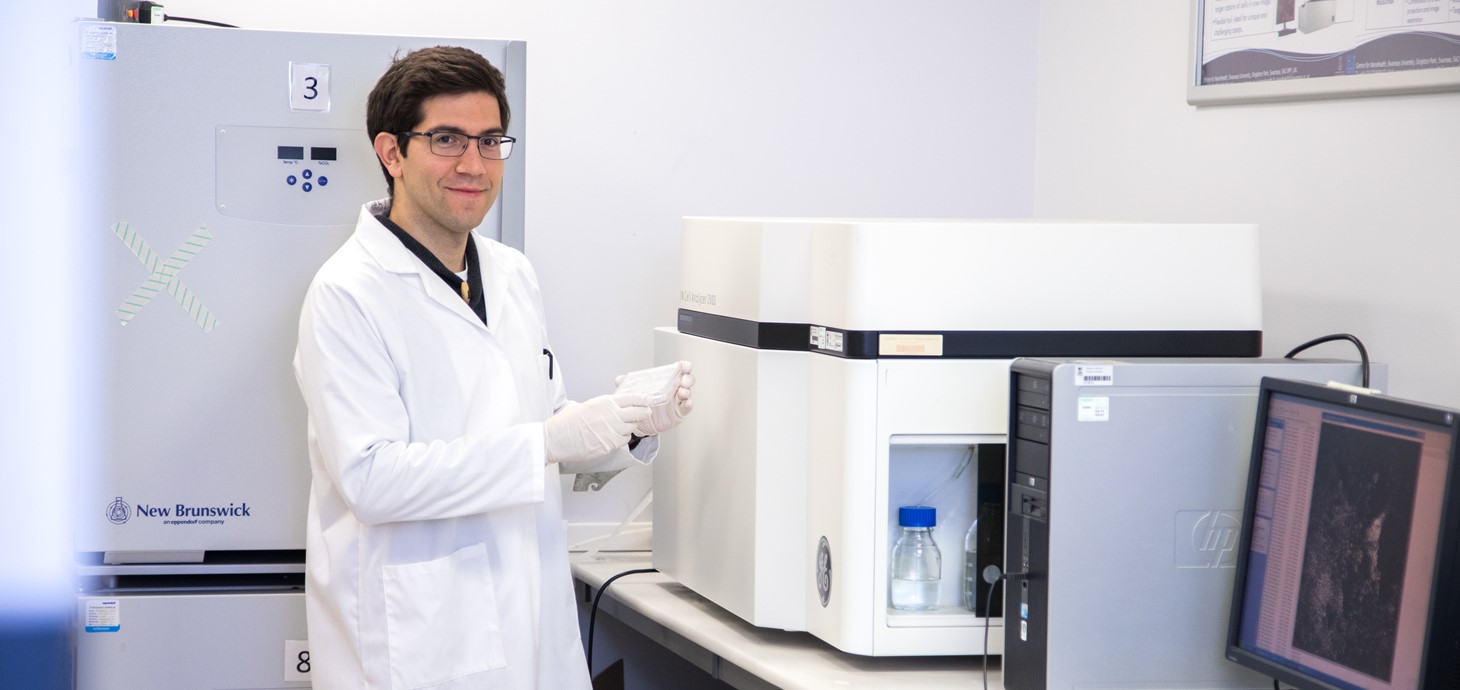These articles are now archived and will no longer be updated.

Research, innovation and development officer for CEAT Marcos Quintela.
A Swansea University project’s ground-breaking work to improve diagnosis and treatment of ovarian cancer has helped it secure more than £3 million of investment from industrial partners.
The Cluster for Epigenomic and Antibody Drug Conjugate Therapeutics (CEAT), based at Swansea University’s Medical School, has also attracted additional funding from Welsh Government – bringing the project’s total value to more than £5 million.
Epigenetics involves studying chemical changes to DNA and associated proteins that can lead to genes being turned on or off. In some cases, this can go wrong and lead to diseases such as cancer and neurodegenerative conditions like Parkinson’s.
Launched early in 2019, CEAT sees the University working closely with its partners to develop drugs that control epigenetic signals and can be targeted specifically towards ovarian cancer cells where epigenetic changes have occurred.
According to Cancer Research UK, around 7,400 women are diagnosed with ovarian cancer in the UK each year, making it the sixth most common cancer in women.
The team is developing techniques to identify patients who will receive targeted epigenetic and non-epigenetic drug treatments. It has now built up an extensive library of patient samples, including chemotherapy-resistant and non-resistant samples and cell lines, and has devised a variety of new techniques to determine patient differences at the epigenetic level.
Dr Lewis Francis, Primary Investigator for CEAT said: “We are delighted to say that the project has been making great strides. We have also identified several promising drug candidates which are undergoing further testing.”
Prof Deya Gonzalez, also a Primary Investigator for the project, added: “CEAT is also moving forward with the development of Antibody Drug Conjugates (ADCs), a powerful new class of therapeutics in medical oncology, where antibodies that target specific cancers are coupled with cytotoxic agents.”
Head of Swansea University Medical School Professor Keith Lloyd said: “CEAT’s partners increasing their investment in the project is a testimony to the progress the team is making and its promising results so far.
“These not only shows how well we can work with industry but also highlight the potentially life-saving treatments that are being developed.”
For further information on the CEAT project please contact Zoe Coombes
